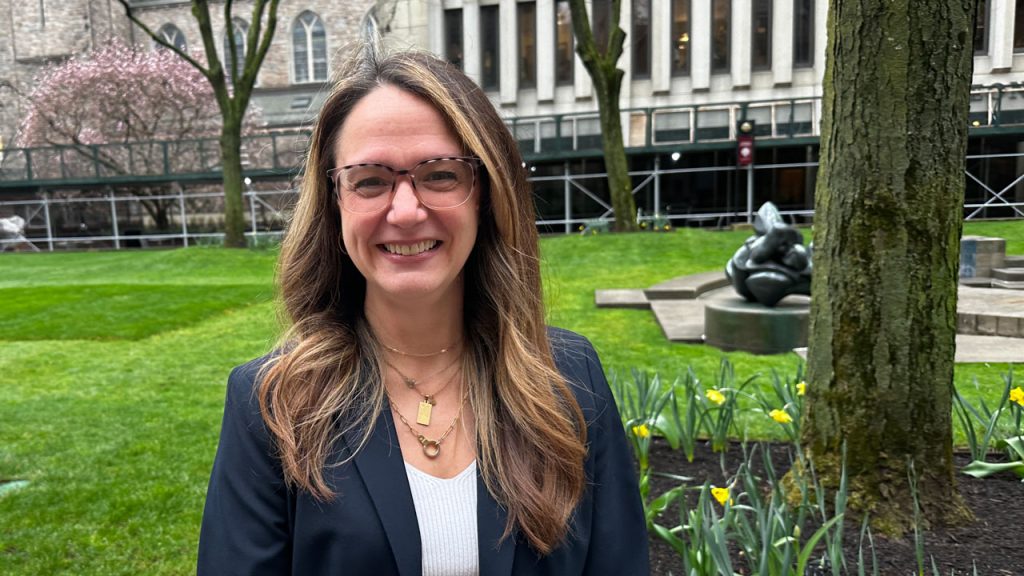The end of the spring semester is a busy time for Jessica Hawkins, associate director of disability services. Just as the Individuals Across the Lifespan course that she teaches in the Graduate School of Social Service is coming to a close, she is simultaneously providing undergraduate and graduate students the accommodations they need to end the academic year on a high note.
“We have so many different students registered with our office for so many different reasons, a typical day is not necessarily a thing here,” said Hawkins, who also serves on the University’s Accessibility Committee.
We spoke to Hawkins about the many ways that she and her team support thousands of Fordham students from their first year through commencement.
Support Without the Stigma
When Hawkins first joined the Office of Disability Services [ODS] as a GSS intern in 2013, it only served about 500 students. That number has since quadrupled to about 2,000 undergraduates and grad students.
Why the increase? “I think people are recognizing that they need help,” she said. “For the generations who are coming up now, there is less of a stigma about disabilities and mental health than there has been in the past.”
A Range of Accommodations
Accommodations at Fordham vary widely. When a student with diabetes needs to be able to have juice in a classroom where a professor doesn’t allow food or drink, that’s an accommodation. And for students who experience anxiety, some might need extended time on exams, while others might require permission to leave class if a panic attack begins.
“You and I could have the same exact diagnosis, but my coping mechanisms and your coping mechanisms are going to be different,” said Hawkins, which is why she and her team meet with each student individually when they register with the office.
Time Skills = Life Skills
Without a parent’s constant reminders to do their homework or care for themselves, students sometimes arrive on campus not knowing how to organize their time.
“They come to college and they’re like, ‘I have all the time in the world because I only have one class on Wednesday and two classes on Tuesday and Thursday’”—only to realize they haven’t factored in time to study, do laundry, and eat.
“I have an entire drawer full of snacks because I have students who come here at two or three o’clock and I’m like, ‘Have you eaten anything all day? No, I could tell.’”
Together with GSS student interns and part-time staff, she provides academic coaching to students to teach them executive functioning skills. Hawkins likes to start with a calendar and inventory how they spend their time to help students establish healthy routines.
Commencement on Crutches? Call ODS
The Office of Disability Services makes commencement accessible to all—including those with unexpected mobility issues.
“Every year, we get students who are not registered with us, who we’ve never spoken to before, but three or four days before commencement, they break their ankle,” she said. Her office finds a place for them to sit where it’s easier to accept their diploma.
The ceremony is also a full-circle moment for her.
“Students are the best part of my job. I get to watch them when they first come in as first-years and register with me, and then I get to watch them walk across the stage and get their diplomas every year. … And I get to go to GSS commencement and watch my interns graduate, which is really special. I love commencement. I cry every single year.”


